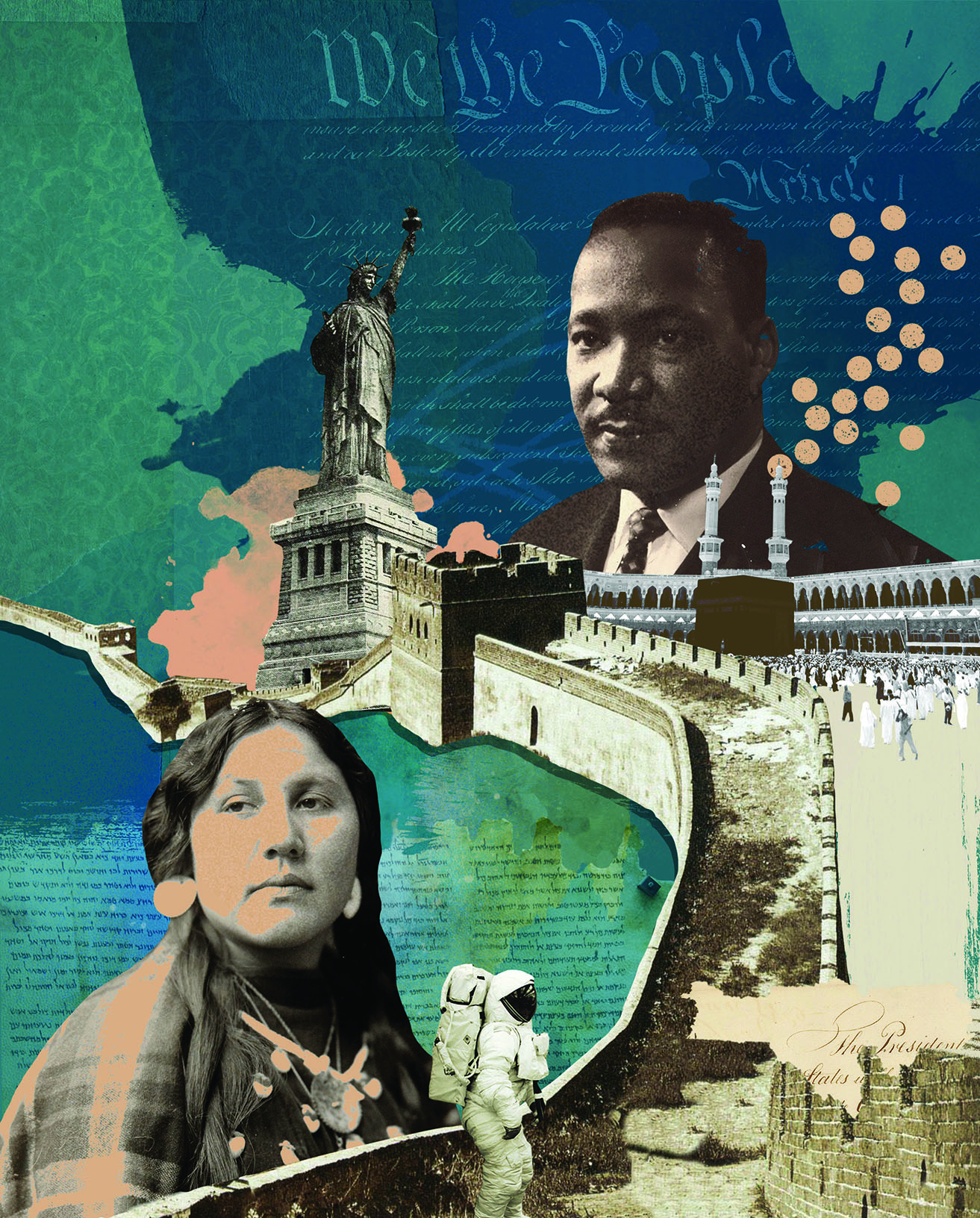
DEGREE: B.S. in biology
JOB TITLE: Executive director, Connecticut Audubon Society
FAVORITE TRINITY MEMORY: I took a class on the history of the English language and was fascinated by its evolution from Old English to Middle English to the language we know today. Also, I enjoyed being lab partners with the Storey brothers [James ’89 and Donald ’89]. They were fun to work with. And Cinestudio holds many fond memories.
What is the mission of the Connecticut Audubon Society, and what is your role in fulfilling it? The Connecticut Audubon Society protects Connecticut’s environment by inspiring conservation action. We connect people to birds and other wildlife and their habitats through education, habitat improvement, and environmental advocacy. As executive director, I have a major role in developing, promoting, and implementing our mission, overseeing staff, engaging volunteers, and securing the resources needed for success. I also act as the organization’s chief spokesman. I see my most important job as ensuring that the organization is making an impact on conserving the nature of Connecticut. I want members, supporters, volunteers, and staff to know that this mission is important to me and that we are working hard to conserve the nature of Connecticut. It is a beautiful state, and we manage 3,200 acres, including some of the most important ecological gems within it. It is quite an honor to be responsible for such amazing places!
What do you enjoy most about your work? Making a difference for birds, other wildlife, and their habitats is what inspires me. Every acre we help to protect or restore and every environmental policy that we help guide to improve the nature of Connecticut is gratifying and makes all the hard work worthwhile.
What are the biggest challenges you face? There is always more to do than we have resources to accomplish. Prioritization of resources can be quite difficult and sometimes means that you have to decline becoming involved in a particular issue, which can be an unpopular decision. The pace can be quite frenetic and at times can be a bit overwhelming.
How did your time at Trinity prepare you for your career? The education I received at Trinity was top-notch. The ability to interact closely with brilliant professors who inspired me to think for myself has served me well throughout my career. Teamwork also was emphasized, and working together with my classmates to solve challenging problems helped me to keep an open mind as to alternative problem-solving strategies. In addition to going to school, I was working nearly full time the entire time. It was a challenging environment, but the individual attention really helped me rise to the challenges of successfully completing a rigorous academic agenda while working. This created a work ethic that has served me well throughout my entire career.
What was the most memorable course you took at Trinity? “Vertebrate Zoology” with Professor Daniel Blackburn. I had always been interested in the sciences and in particular biology, and during this course, I became fascinated by vertebrate evolution and anatomical structure. Of particular interest to me was the evolution of birds. At the time, bird-dinosaur connections were a newly emerging study, and there was still much debate over the origins of birds. As part of this process, I became fascinated by the adaptations of modern birds, and this led me to a lifelong fascination with these modern heirs to the dinosaurs. Connecticut, which has been my home state my entire life, does not have the charismatic megafauna of Africa or Asia; we don’t have lions or leopards or elephants, but we do have more than 400 species of birds. These include large and charismatic creatures such as eagles and herons, as well as tiny gems such as warblers and hummingbirds. There are many details to take in, like refractive feathers of a hummingbird’s throat and various fascinating behavior strategies. There is always something new to learn about these amazing creatures. As I learned more about them, I also learned that there were conservation needs right here in our backyard. When most people think of conservation issues, things like the Great Barrier Reef or Amazon rainforest come to mind. I eventually learned that many of our birds and local habitats were also in trouble and that conservation actions can begin right here. This led to an incredibly rewarding career in conservation.
Was there a professor at Trinity who was particularly influential? Professor Craig Schneider was particularly influential. He was my adviser and really took the time to get to know me and what my interests were and encouraged me to find what I was inspired by and to enjoy learning more about those topics. His botany course was also wonderful, and it has served me well throughout my conservation career.
